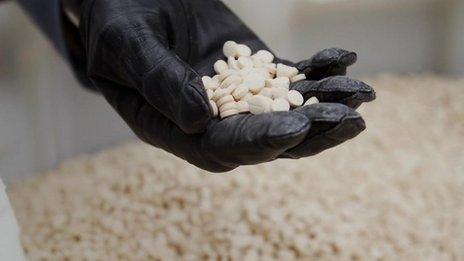Syria: New Captagon drug trade link to top officials found
- Published

Captagon, dubbed "the poor man's cocaine", is produced in huge quantities in Syria
New direct links between the multi-billion dollar Captagon drug trade and leading members of the Syrian Armed Forces and President Bashar al-Assad's family have been revealed in a joint investigation by BBC News Arabic and the investigative journalism network OCCRP.
Captagon is a highly addictive amphetamine-like drug that has plagued the Middle East in recent years. Over the past year, the BBC has filmed with the Jordanian and Lebanese armies, observing their campaigns to stop Captagon being smuggled across the borders into their countries from Syria.
Now the drug is being found in Europe, Africa and Asia.
In March, Britain, the United States and the European Union imposed sanctions on a list of people - including two cousins of President Assad - suspected of involvement in the Captagon trade. But the BBC's investigation, deep inside Syria's narco-state, has found evidence indicating the involvement of other senior Syrian officials in addition to those already included in that list.
Syria's government has not responded to the BBC's request for comment. However, it has previously denied any involvement in the drugs trade.
In July 2022, in the city of Suweida in southern Syria, the headquarters of Raji Falhout, the leader of a regime-allied militia, was overrun by a rival group. They found bags of what appeared to be Captagon pills prepared for distribution and a machine which could be used to press pills, as well as Mr Falhout's Syrian military ID card and an unlocked mobile phone.
Gaining exclusive access to the phone, the BBC found a series of messages between Mr Falhout and a Lebanese contact he called "Abu Hamza", in which they discussed the purchase of the pill-pressing machine. There is a chat on the mobile from August 2021, in which Mr Falhout and Abu Hamza talked about moving the machinery from Lebanon to Syria.
Using the phone number, the BBC established Abu Hamza's real identity - Hussein Riad al-Faytrouni. We have been told by local journalists that he is linked to Hezbollah, the Lebanese political party and militant group closely affiliated with the Syrian government.
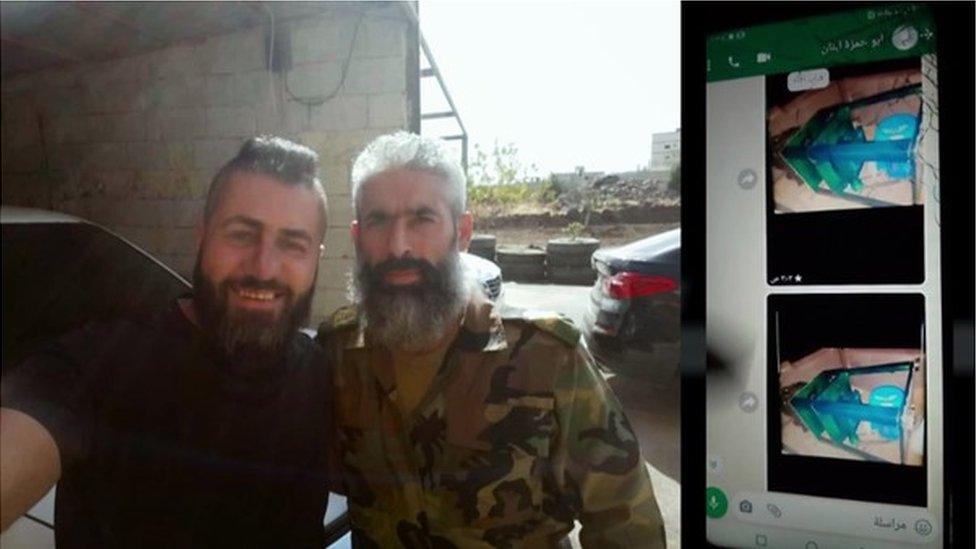
Raji Falhout with Abu Hamza and a screenshot (R) of their WhatsApp conversation
Hezbollah's fighters have played a key role in helping the Syrian government turn the tide in the civil war and are reported to have a presence throughout Syria. They have long been accused of involvement in drug trafficking, but have always denied it.
Speaking to us from exile, a Syrian journalist from the Suweida area explained: "Hezbollah is involved but is very careful not to have its members playing key roles in transporting and smuggling the merchandise."
Hezbollah did not respond to the BBC's request for comment about Mr Faytrouni. They have previously denied any role in the production and smuggling of Captagon. We were unable to reach Mr Falhout or Mr Faytrouni for comment.
That was not the only time Hezbollah appeared in our investigation.
After months of security preparation the BBC was able to get rare access to the Syrian Armed Forces in government-controlled Aleppo.
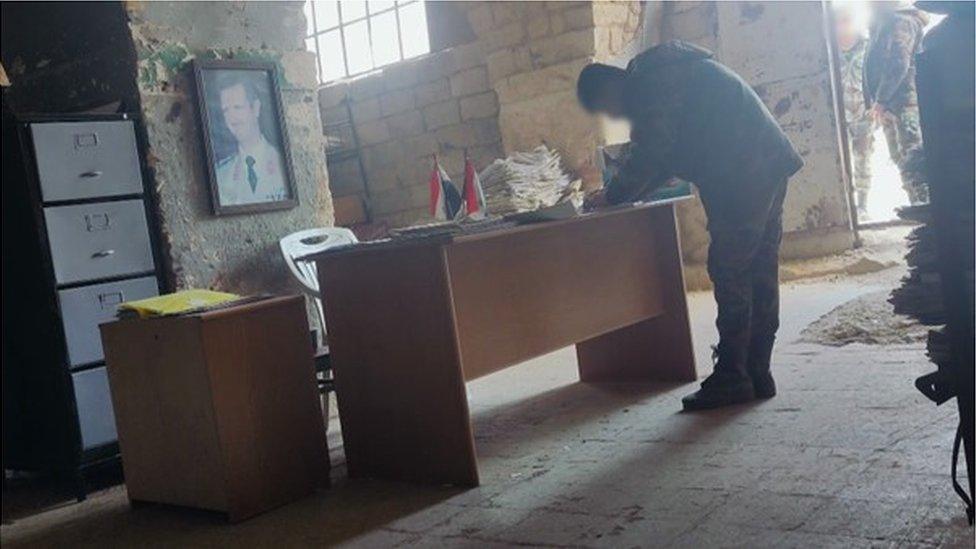
A BBC team visited a Syrian military barracks in Aleppo province
One soldier, who spoke to us on condition of anonymity, told us his fellow soldiers' monthly pay was less than 150,000 Syrian pounds (£47; $60).
He said many of them had become drug dealers locally to supplement their incomes, and that this had become routine for them.
We asked him to describe his unit's role in the local Captagon trade.
"We were not allowed to go to the factory," he said. "They would pick a meeting place and we would buy from Hezbollah. We would receive the goods and co-ordinate with the Fourth Division to facilitate our movement."
The Fourth Division is an elite Syrian army unit tasked with protecting the government from internal and external threats. Since 2018 it has been formally led by Maher al-Assad, the younger brother of President Assad.
Maher al-Assad is subject to Western sanctions for carrying out brutal crackdowns on demonstrators during Syria's civil war and has also been linked with the alleged use of chemical weapons.
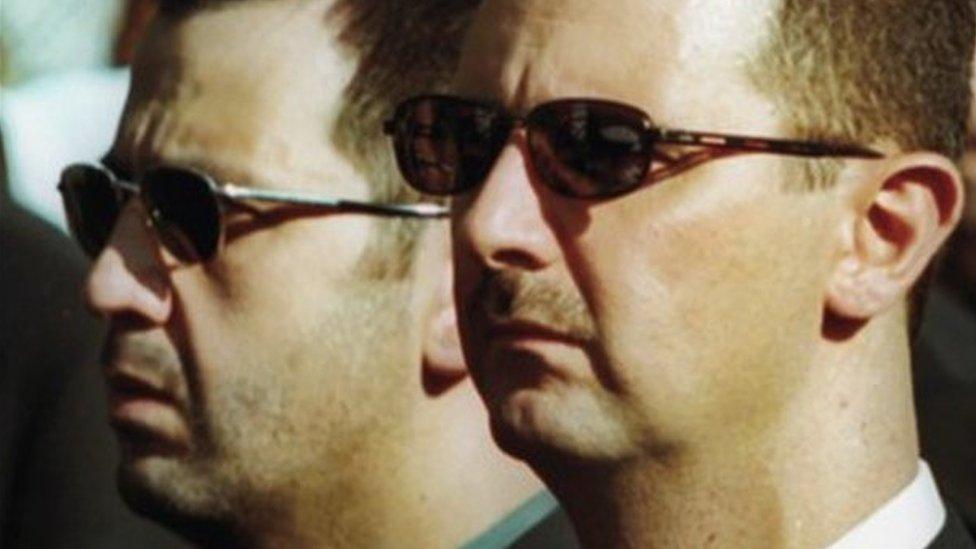
Maher al-Assad (L) and President Bashar al-Assad (R) in 2000
He is also said to have overseen the transformation of the Fourth Division into a major economic player.
We spoke to a former officer who had defected from the Syrian army. He told us: "Because of the tough financial conditions which the officers and ranks are going through during the Syrian war, many members of the Fourth Division have resorted to smuggling.
"So the cars of the Fourth Division's officers started to be used to carry extremists, weapons, drugs, since it was the only body able to move across checkpoints in Syria."
Syria's economy, crippled by sanctions and war, is now close to collapse. Analysts have told us it has become increasingly reliant on the lucrative little Captagon pill.
"The scale of the revenues... dwarfs the Syrian state budget," Joel Rayburn, a former US special envoy to Syria, told the BBC. "If the Captagon revenues were stopped or seriously disrupted, I don't think the Assad regime could survive that."
The BBC has found further evidence of Assad family involvement in the business.
In 2021, a trial began in Lebanon against a notorious Lebanese-Syrian businessman called Hassan Daqqou, dubbed the "King of Captagon" by the Lebanese press. He was found guilty of Captagon trafficking after a huge shipment of the drug was seized in Malaysia.
The haul, containing nearly 100m pills, was destined for Saudi Arabia where its street value was estimated at between $1bn-$2bn (£790m-£1.6bn), making it one of the biggest drug busts in history.
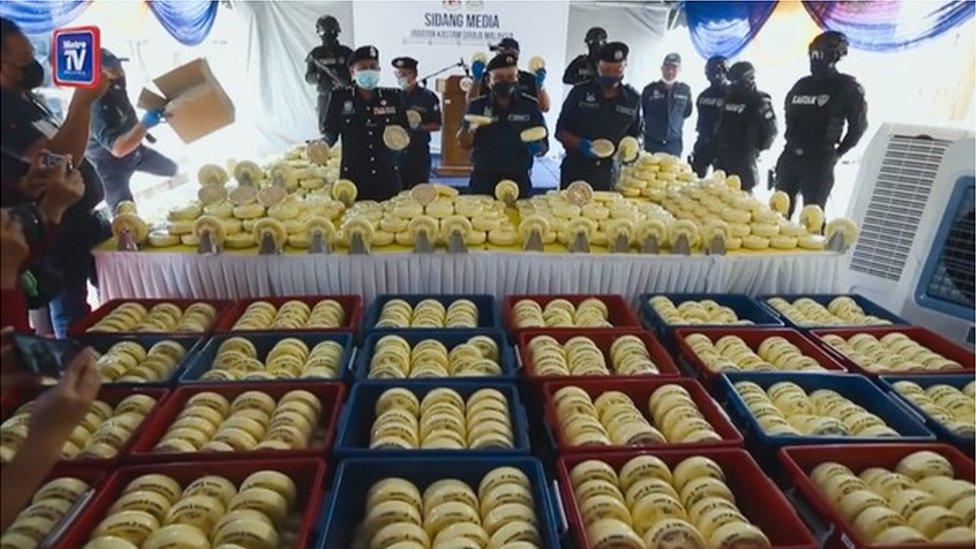
Malaysian authorities seized nearly 100m Captagon pills in 2021
The case was heard behind closed doors, but our team met with the judge who told us that most of the evidence came from the surveillance of phone communications between Daqqou and a number of drug smugglers.
In the trial, Daqqou said he was collaborating with the Syrian army's Fourth Division to fight Captagon traffickers and presented a Fourth Division ID card as evidence.
Daqqou told the BBC that he maintained his innocence and that no evidence was found by the court to involve him in a Captagon shipment.
While Daqqou was found guilty of trafficking, the judge told the BBC that no evidence was found of Syrian officials' involvement in his Captagon business.
But our investigation found something in the 600-page court document that tells a different story - a series of screenshots of WhatsApp messages that Daqqou sent to someone he called "The Boss". Their phone number mostly consisted of the same digit repeated many times, making it a prized so-called "golden number".
The BBC spoke to various high-level sources in Syria who confirmed that the number belonged to Major General Ghassan Bilal. We called the number repeatedly but failed to get a response.
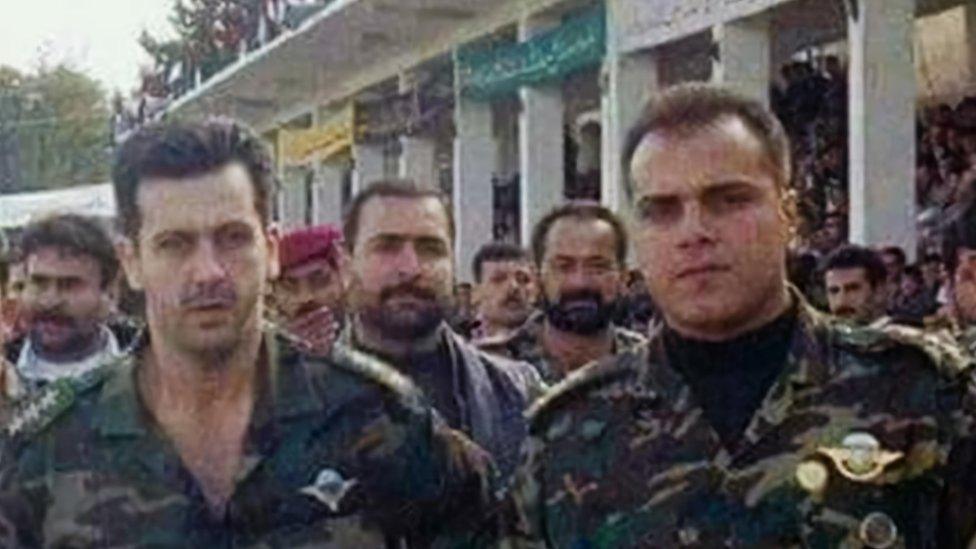
Maher al-Assad (L) and Ghassan Bilal (R)
Gen Bilal is Maher al-Assad's number two in the Fourth Division, and is understood to run its powerful Security Bureau.
In the WhatsApp messages, Daqqou discussed with The Boss the movement of "goods" - which we believe to be Captagon - to a Syrian town called Saboora, where the Fourth Division has a large base, as well the renewal of security clearances.
If The Boss really is Gen Bilal, the conversation suggests that one of Syria's most senior army officers is linked to the illegal Captagon trade, worth billions of dollars. Gen Bilal did not return our attempt to reach him for comment.
In May, Syria was welcomed back into the Arab League and President Assad attended a meeting of the regional grouping for the first time in more than a decade. He has also been invited to the United Arab Emirates to attend COP28 this coming November.
The question remains as to what extent the international community will seek to pressure the regime to give up Syria's addiction to Captagon.
Additional reporting by BBC News Arabic Investigations and OCCRP MENA team
Related topics
- Published25 December 2022
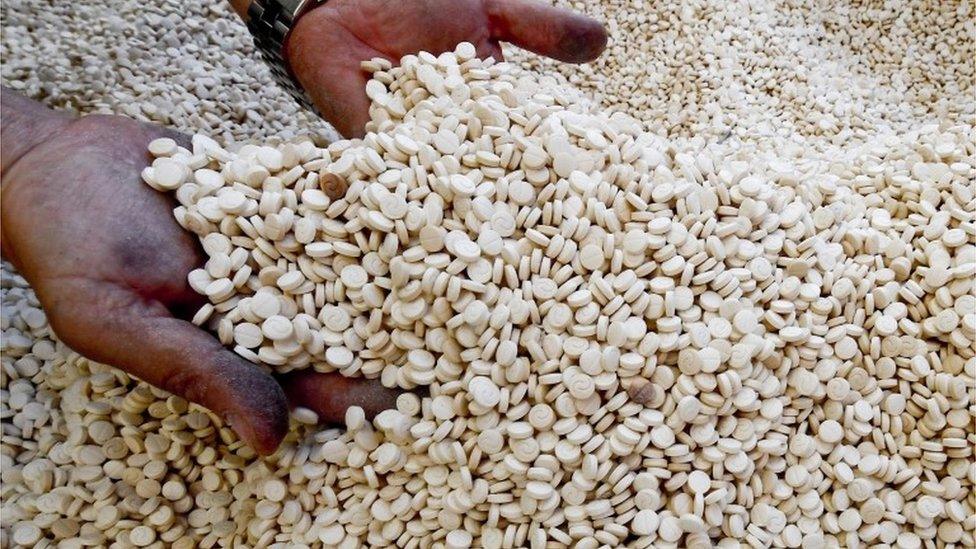
- Published18 April 2022
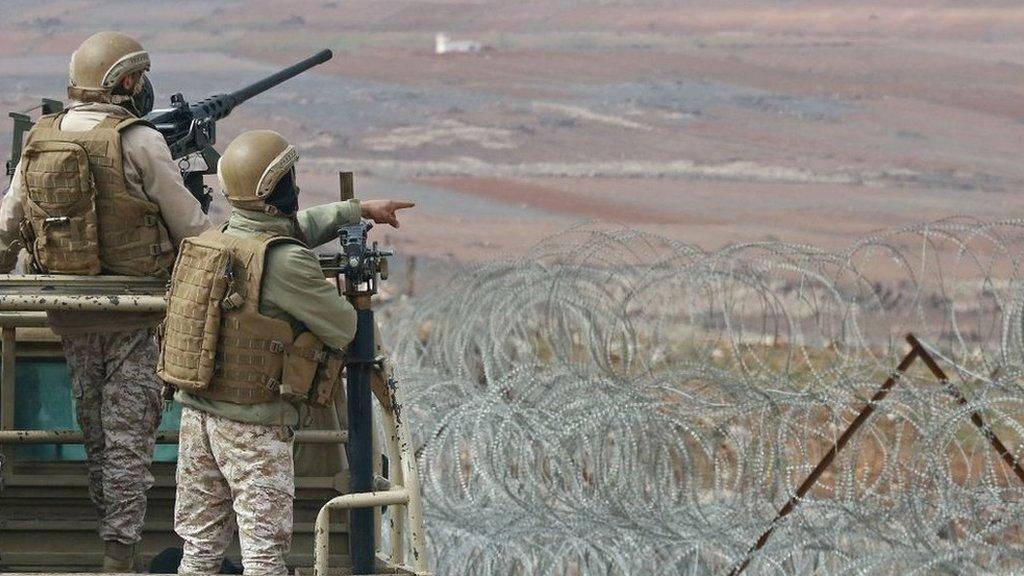
- Published27 January 2022
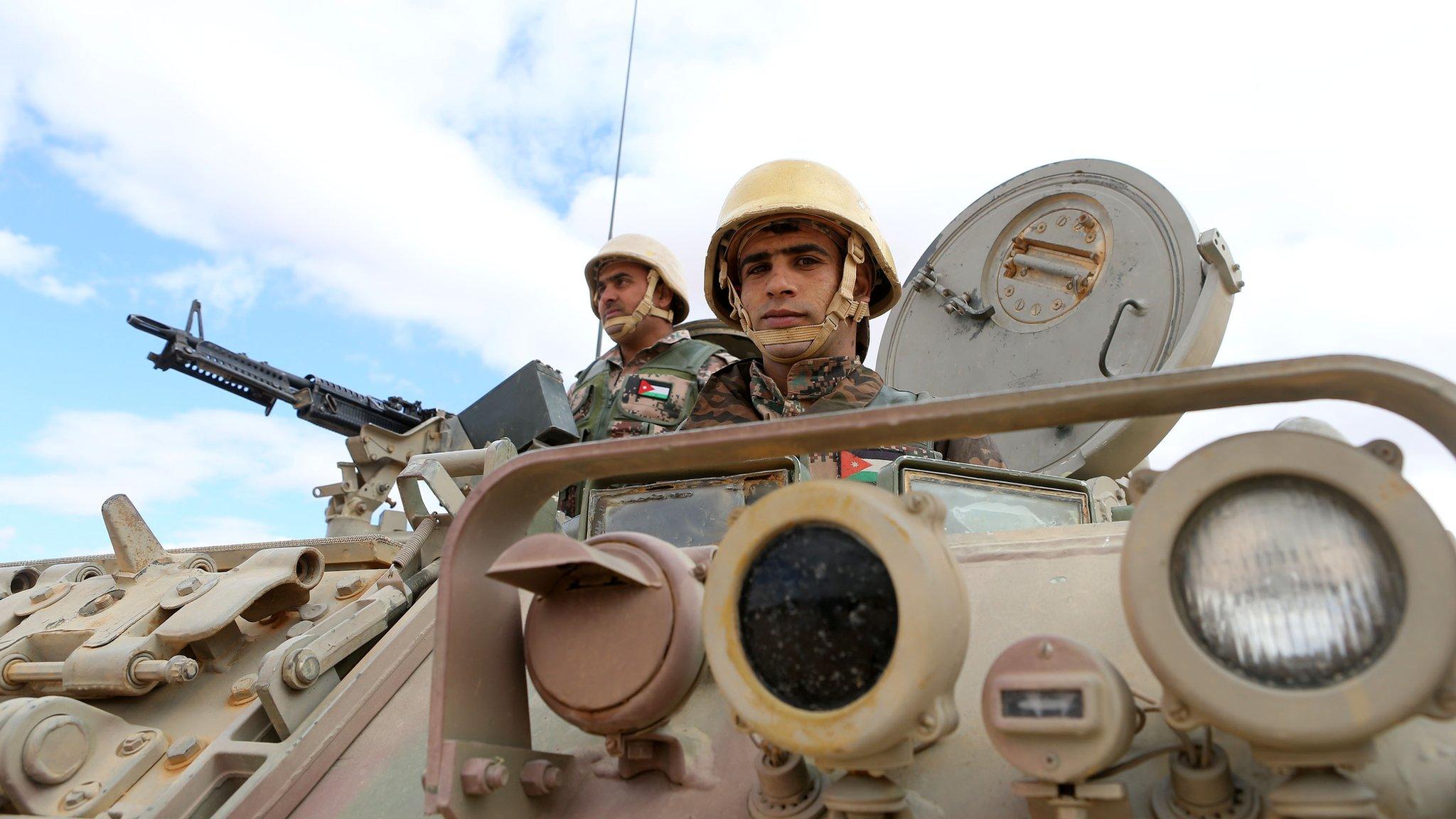
- Published9 January 2021
